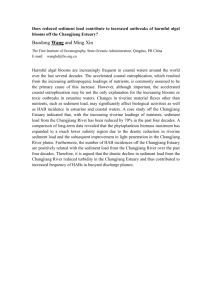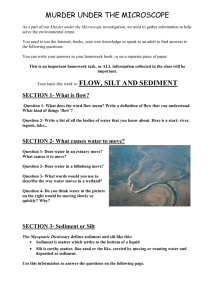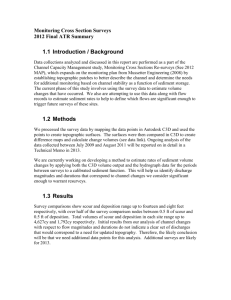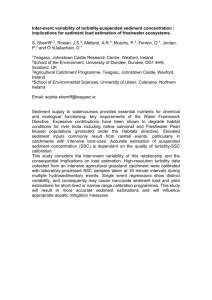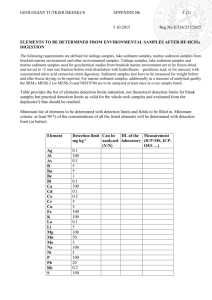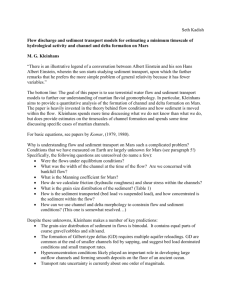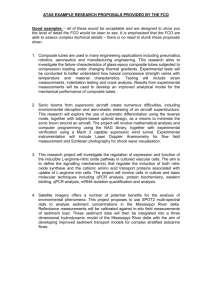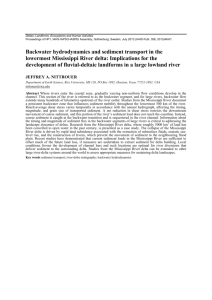Changjiang River delta sedimentation in response to catchment
advertisement
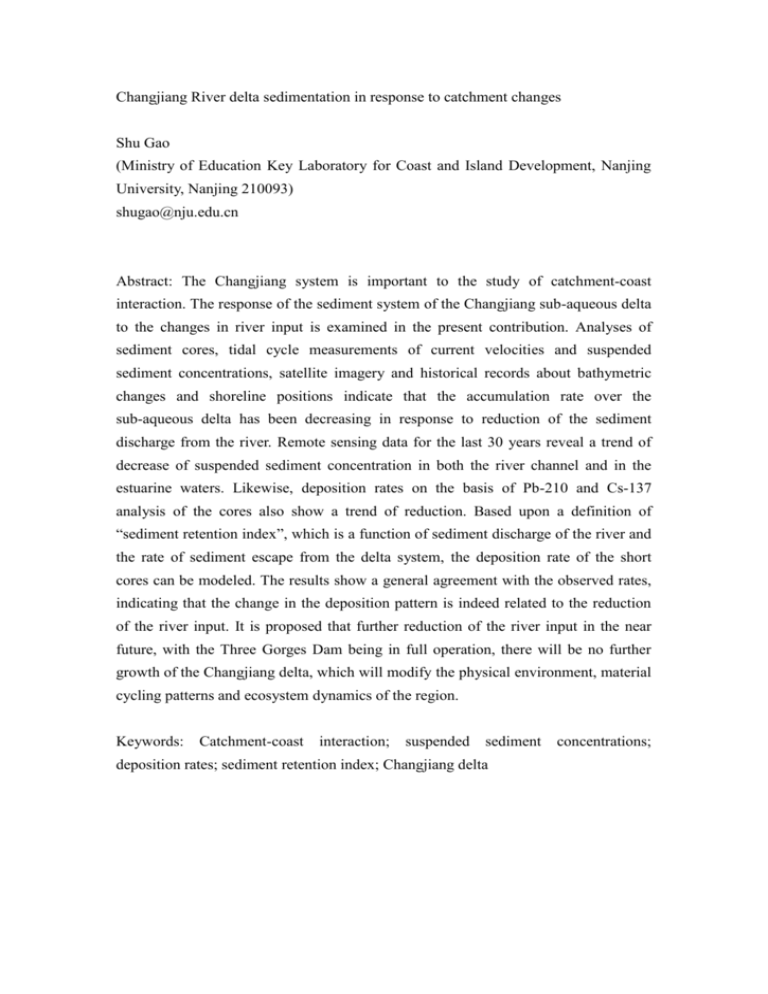
Changjiang River delta sedimentation in response to catchment changes Shu Gao (Ministry of Education Key Laboratory for Coast and Island Development, Nanjing University, Nanjing 210093) shugao@nju.edu.cn Abstract: The Changjiang system is important to the study of catchment-coast interaction. The response of the sediment system of the Changjiang sub-aqueous delta to the changes in river input is examined in the present contribution. Analyses of sediment cores, tidal cycle measurements of current velocities and suspended sediment concentrations, satellite imagery and historical records about bathymetric changes and shoreline positions indicate that the accumulation rate over the sub-aqueous delta has been decreasing in response to reduction of the sediment discharge from the river. Remote sensing data for the last 30 years reveal a trend of decrease of suspended sediment concentration in both the river channel and in the estuarine waters. Likewise, deposition rates on the basis of Pb-210 and Cs-137 analysis of the cores also show a trend of reduction. Based upon a definition of “sediment retention index”, which is a function of sediment discharge of the river and the rate of sediment escape from the delta system, the deposition rate of the short cores can be modeled. The results show a general agreement with the observed rates, indicating that the change in the deposition pattern is indeed related to the reduction of the river input. It is proposed that further reduction of the river input in the near future, with the Three Gorges Dam being in full operation, there will be no further growth of the Changjiang delta, which will modify the physical environment, material cycling patterns and ecosystem dynamics of the region. Keywords: Catchment-coast interaction; suspended sediment deposition rates; sediment retention index; Changjiang delta concentrations;
